AFL Players Taxed in NZ - A Storm in a Teacup!
- Saturday, August 09 2014 @ 12:25 am ACST
- Contributed by: Rod Shaw
- Views: 2,460

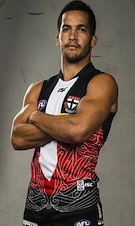 In a story that has been splashed across the mainstream media of Australia, AFL players have been taxed by the New Zealand government for matches played in Wellington over the last two years.
In a story that has been splashed across the mainstream media of Australia, AFL players have been taxed by the New Zealand government for matches played in Wellington over the last two years.
The first-ever match on foreign soil to be played for premiership points saw the Swans take on the Saints in a historic clash in 2013. The Saints then returned to Wellington in round six of this year to take on the Lions.
However, it has been revealed that the players who took part in the matches were taxed a portion of their match fee because the Kiwi government deemed them to be ‘entertainers.’
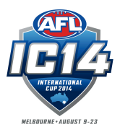
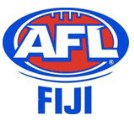 Bringing both mens and womens squads to Melbourne for the International Cup, including travel, uniforms, and over 2 weeks of accommodation and food - is no small undertaking for any nation. For AFL Fiji the support of others is crucial and the opportunity exists via 'MyCause' to make a donation to assist.
Donations can be made at
Bringing both mens and womens squads to Melbourne for the International Cup, including travel, uniforms, and over 2 weeks of accommodation and food - is no small undertaking for any nation. For AFL Fiji the support of others is crucial and the opportunity exists via 'MyCause' to make a donation to assist.
Donations can be made at 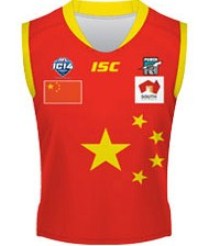
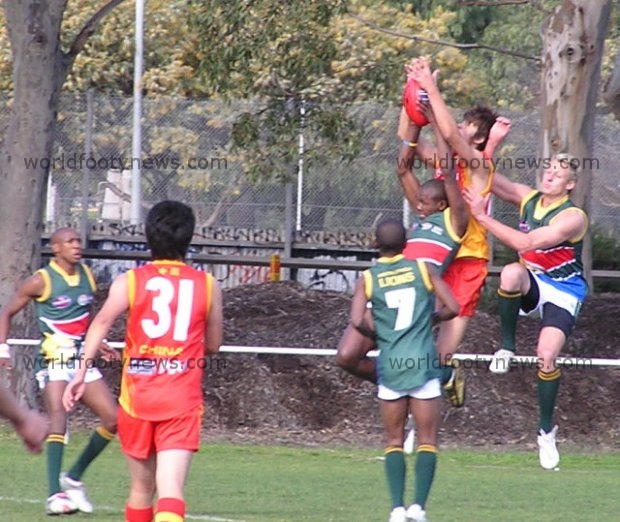 The Port Adelaide Football Club is delighted to announce that it is the major host sponsor of the China national team for the upcoming AFL International Cup to
The Port Adelaide Football Club is delighted to announce that it is the major host sponsor of the China national team for the upcoming AFL International Cup to
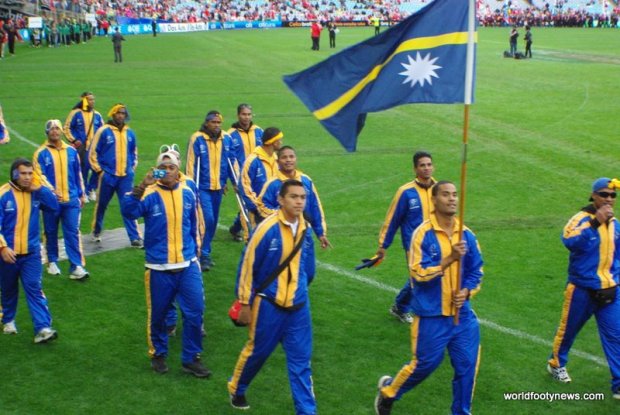 Not all the action of the International Cup happens on the field. This Saturday at 1.30pm the tournament will be launched at Federation Square in Melbourne.
Not all the action of the International Cup happens on the field. This Saturday at 1.30pm the tournament will be launched at Federation Square in Melbourne.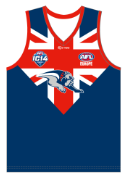 In four attempts at the International Cup the Great Britain Bulldogs have finished 6th, 6th, 9th and 7th. But this time around there's confidence that the squad is the best yet to represent Great Britain, with youngsters coming through and increased big match experience through the European Championships and the Euro Cup.
In four attempts at the International Cup the Great Britain Bulldogs have finished 6th, 6th, 9th and 7th. But this time around there's confidence that the squad is the best yet to represent Great Britain, with youngsters coming through and increased big match experience through the European Championships and the Euro Cup.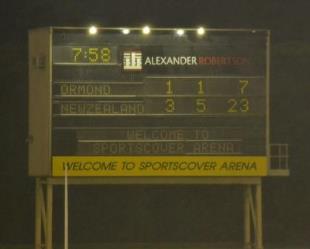
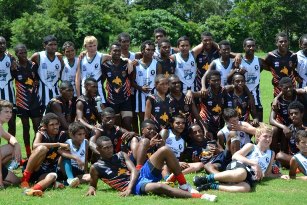
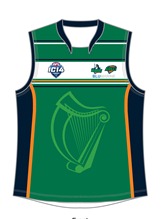 The Irish Warriors enter the 2014 International Cup attempting to win back to back titles, something that has never been achieved before in the short history of the tournament. Ireland has appeared at every International Cup, winning inaugural event in 2002 before slipping to fourth in ’05 and ’08 followed by victory at the MCG in 2011.
The Irish Warriors enter the 2014 International Cup attempting to win back to back titles, something that has never been achieved before in the short history of the tournament. Ireland has appeared at every International Cup, winning inaugural event in 2002 before slipping to fourth in ’05 and ’08 followed by victory at the MCG in 2011.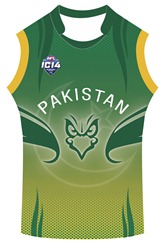 Although teams at the International Cup traditionally are representing the football competition in their country the Shaheens are a team of players that have formed in Australia, competing in local footy in Melbourne. Shaheens players are eligible to play at the International Cup as they are "amateurs who are nationals of the country they represent (Pakistan) and all players must have lived the majority of the years aged between 10 and 16 as a citizen of their nation."
Although teams at the International Cup traditionally are representing the football competition in their country the Shaheens are a team of players that have formed in Australia, competing in local footy in Melbourne. Shaheens players are eligible to play at the International Cup as they are "amateurs who are nationals of the country they represent (Pakistan) and all players must have lived the majority of the years aged between 10 and 16 as a citizen of their nation." 

 RSS news
RSS news Twitter
Twitter Facebook
Facebook